Total salary fund of cadres, civil servants and public employees increased by 30% is not equal
Delegate Pham Van Hoa (National Assembly Delegation of Dong Thap Province) expressed his agreement with the Government's Proposal that salary reform and related policies should be implemented in a timely, appropriate, step-by-step, cautious, and certain manner, ensuring feasibility, efficiency, and compliance with the budget's ability to pay. The delegate said that the removal of the basic salary and salary coefficient is still inadequate due to the inclusion of the 25% public service allowance in the new salary table, leading to an average increase of 23.25% in the basic salary of civil servants (low compared to the average increase of 54.3% for public employees and the increase of 43.96% for the armed forces).
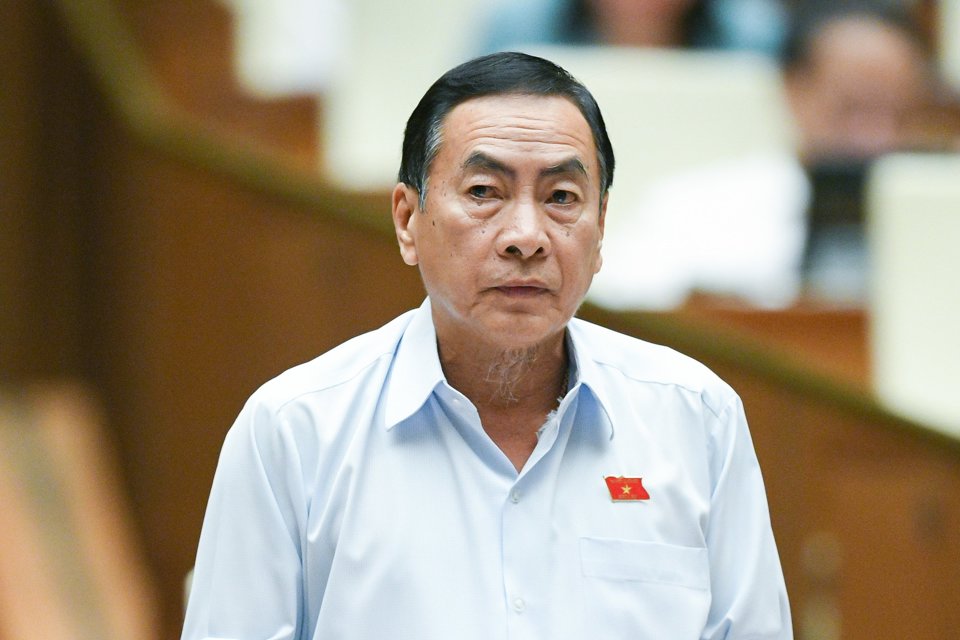
"The total salary fund for cadres, civil servants, and public employees increased by 30% and the armed forces increased by 51.93%, which is not equal to the salary recipients and is not consistent with the new salary table as planned. The lowest salary of level 1, intermediate, and trainee employees in the trainee salary table is low compared to the salary increase and the average salary of civil servants, which can easily cause unstable mentality when we reform salary" - delegate Pham Van Hoa said.
In addition, according to the delegate, when converting from old salary to new salary for civil servants and public employees holding leadership positions who are receiving professional and technical salaries with leadership position allowances, it will be very difficult because many old salary levels such as: civil servant ranks, professional titles, different public employees are classified into a new salary level, leading to many cases with lower salaries than the current salary. In addition, calculating salary according to job position also requires amending many regulations of the Party and State on policies and regimes associated with the current basic salary level.
Delegate Pham Van Hoa also analyzed that the difference in pensions between those who retired before and after July 1, 2024, as well as the removal of seniority allowances for some civil servants and specialized public employees, caused a significant decrease in new salaries - especially in remote and difficult areas, and preferential allowances, leading to concerns for civil servants and public employees.
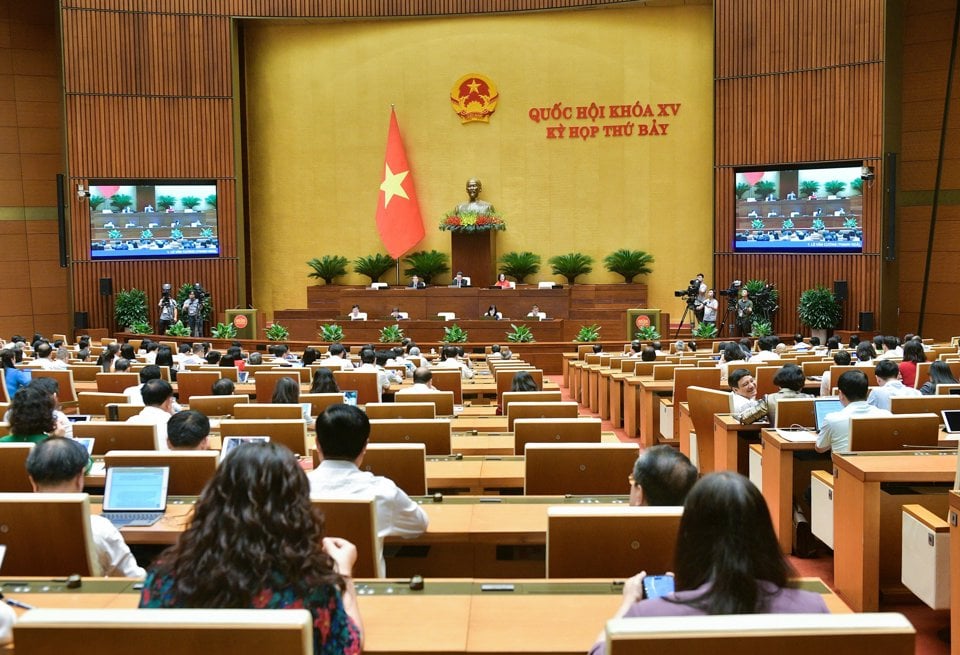
Teachers continue the refrain "wait, wait"
Delegate Duong Minh Anh (National Assembly Delegation of Hanoi) said that the solution to adjust the basic salary increase for public sector civil servants, public employees and armed forces from 1.8 million VND to 2,340 thousand VND, an increase of 30%, increasing the bonus fund by 10% of the basic salary fund, which will be applied from July 1, 2024, has partly met the expectations of voters, but because the salary reform policy has not been applied, we still continue to apply the current salary scale and allowance regime. Therefore, a number of public sector civil servants and public employees, including civil servants and public employees in the education sector, still have many concerns and worries.
According to delegate Duong Minh Anh, since 2013, after the Central Executive Committee issued Resolution 29 on fundamental and comprehensive education reform, many major policies on education reform have been issued, the requirements for improving the quality of education and training in both quality and quantity have been increasing, creating no small pressure on teachers, but the salary policy only applies Resolution 29, which is that teachers' salaries are given the highest priority in the salary table of the administrative career salary system. After 11 years, this regulation is still on paper and has not been implemented.
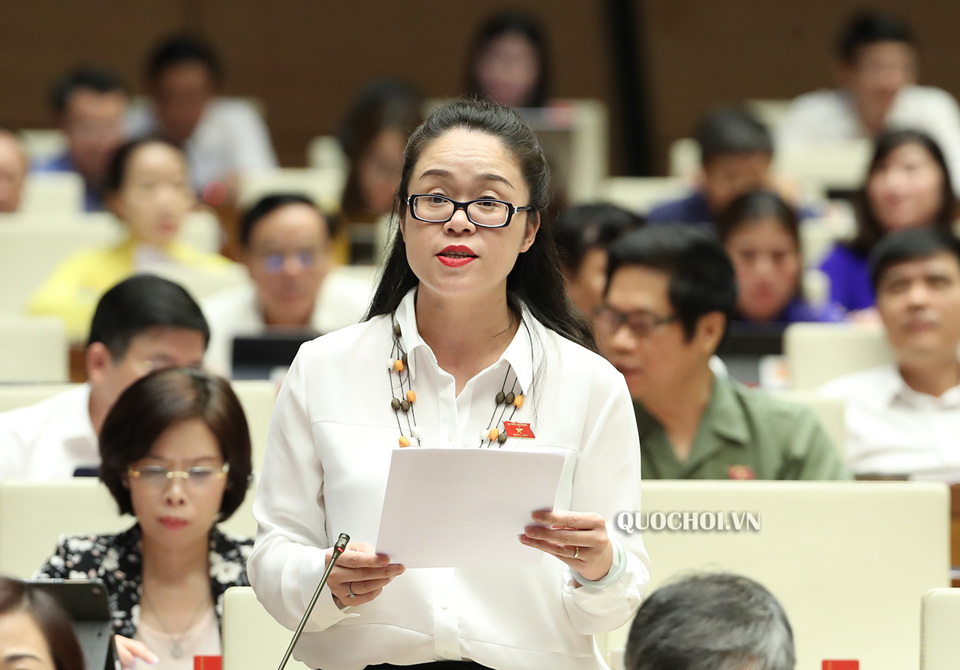
Throughout the past time, teachers have always tried to devote themselves to the cause of education and training, always encouraged each other to wait and hope that one day there will be a big change in salary policy. However, up to now, teachers will continue to say "wait, wait" until a new salary reform policy is issued.
"I earnestly recommend that the National Assembly and the Government, when studying the upcoming salary reform policy, need to institutionalize the Party's policies in laws or sub-law documents on salary policies and professional allowances for teachers," said delegate Duong Minh Anh.
Along with salary increase, there must be solutions to stabilize prices.
Concerned about the salary payment method, delegate Nguyen Quang Huan (National Assembly Delegation of Binh Duong Province) said that in Resolution 27/2018 of the Central Committee, it is stated that we have reformed salaries 4 times, the most recent time was in 2003. If we compare the economy in 2003, at that time our GDP was about 45 billion USD and now it is more than 450 billion USD, which means an increase of about 10 times. Saving 913 trillion to pay salaries for this period is a great effort in the context of economic difficulties.
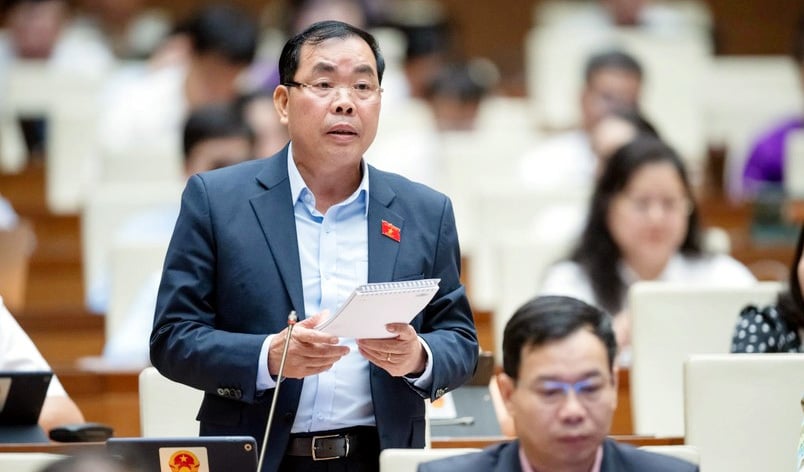
However, the delegate said that the Government should consider introducing a formula for paying salaries according to GDP growth: GDP growth will change salaries accordingly. Increasing salaries according to GDP will help officials and civil servants feel secure about their income, stay with their jobs long-term, and also be a way to fight corruption from the beginning because at that time, if the salary is large enough, enough to cover expenses, support their families, and is worthy, they will not want to be corrupt and will be afraid of getting involved in corruption because they may lose a huge source of income.
Delegate Ta Van Ha (National Assembly Delegation of Quang Nam Province) suggested that in addition to salary increases, reform of streamlining the payroll system must be further promoted. The salary level has been increased, but at the same time, streamlining the payroll system and streamlining the payroll system must be more proactive.
The delegate said that in fact, before the salary increase, prices had already increased for a while. Therefore, along with the salary increase, there should be solutions to stabilize prices, especially for consumer goods. At the same time, attention must be paid to the issue of family deductions. If the salary increases by 30%, then at least the family deductions must also increase by 30%, or even up to 50%.
Source: https://kinhtedothi.vn/dai-bieu-quoc-hoi-tra-luong-theo-muc-tang-gdp-se-chong-tham-nhung-tu-dau.html



![[Photo] Students of Binh Minh Primary School enjoy the full moon festival, receiving the joys of childhood](https://vphoto.vietnam.vn/thumb/1200x675/vietnam/resource/IMAGE/2025/10/3/8cf8abef22fe4471be400a818912cb85)
![[Photo] Prime Minister Pham Minh Chinh chairs meeting to deploy overcoming consequences of storm No. 10](https://vphoto.vietnam.vn/thumb/1200x675/vietnam/resource/IMAGE/2025/10/3/544f420dcc844463898fcbef46247d16)






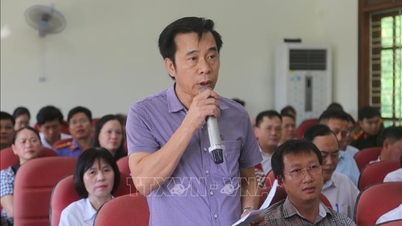
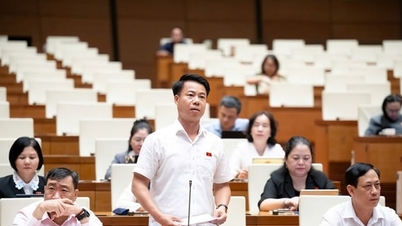

![[Photo] National Assembly Chairman Tran Thanh Man chairs the 8th Conference of full-time National Assembly deputies](https://vphoto.vietnam.vn/thumb/402x226/vietnam/resource/IMAGE/2025/9/29/2c21459bc38d44ffaacd679ab9a0477c)

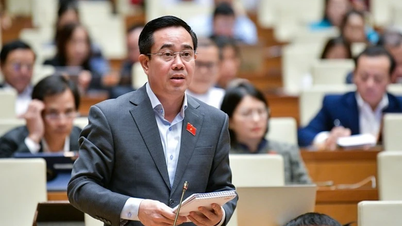











































































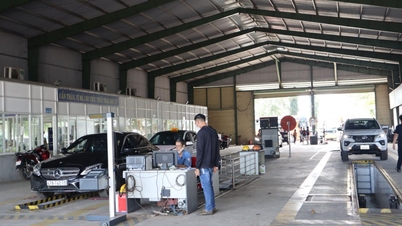












Comment (0)